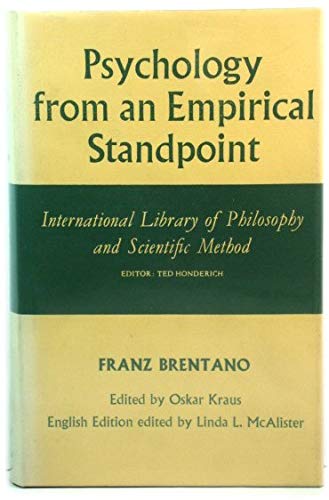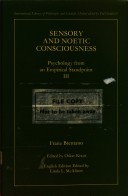International Library of Philosophy
3 total works
Franz Brentano's classic study Psychology from an Empirical Standpoint was the most important of Brentano's works to be published in his lifetime.
A new introduction by Peter Simons places Brentano's work in the context of current philosophical thought. He is able to show how Brentano has emerged since the 1970s as a key figure in both contemporary European and Anglo-American traditions and crucial to any understanding the recent history of philosophy and psychology.
A new introduction by Peter Simons places Brentano's work in the context of current philosophical thought. He is able to show how Brentano has emerged since the 1970s as a key figure in both contemporary European and Anglo-American traditions and crucial to any understanding the recent history of philosophy and psychology.
Franz Brentano (1838-1917) is a key figure in the development of Twentieth Century thought. It was his work that set Husserl on to the road of phenomenology and intentionality, that inspired Meinong's theory of the object which influenced Bertrand Russell, and the entire Polish school of philosophy.
^Descriptive Psychology presents a series of lectures given by Brentano in 1887; they were the culmination of his work, and the clearest statement of his mature thought. It was this later period which proved to be so important in the work of his student, Husserl.
This is the first English translation of his work. Benito Muller has added a concise introduction which places Brentano within the history of philosophy and psychology, and locates his influence in contemporary thought.
^Descriptive Psychology presents a series of lectures given by Brentano in 1887; they were the culmination of his work, and the clearest statement of his mature thought. It was this later period which proved to be so important in the work of his student, Husserl.
This is the first English translation of his work. Benito Muller has added a concise introduction which places Brentano within the history of philosophy and psychology, and locates his influence in contemporary thought.


